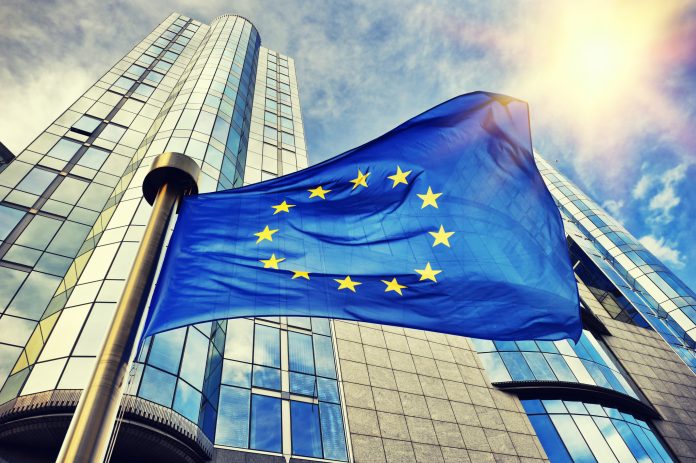Mariya Gabriel, European Commissioner for Innovation, Research, Culture, Education and Youth, describes Horizon Europe and scaling up high-impact and breakthrough research & innovation
Knowledge and innovation save lives. Since the beginning of the pandemic, EU research and innovation has been one of our most impactful tools to tackle the disease (1).
One of the most notable success stories is the development of the Pfizer & BioNTech COVID-19 vaccine, supported by the EU with €100 million (2). This has also been possible thanks to the support from EU Research and Innovation (R&I) programmes over time; since the creation of the company in 2008 as a spin-off of the University Mainz, BioNTech and its subsidiaries have received nearly €10 million, participating in ten EU R&I projects.
Horizon Europe
Today we are in a challenging, yet exciting moment, transitioning between two EU R&I Programmes, Horizon 2020 and Horizon Europe.
With a budget of €77 billion and more than 32,000 signed grants to date, Horizon 2020 appears remarkably international and collaborative, counting over 150 participating countries and 1.5 million one-to-one collaborations. It has helped to tackle challenges, with 84% of its investments related to at least one SDG and 30% to climate action, while over €1 billion has been mobilised to fight the COVID-19 outbreak.
As Horizon 2020 comes to an end, it is time for a thorough analysis of the programme, to learn from its implementation, assessing the results and impacts, and the overall relevance, coherence and efficiency of the programme. This analytical work has started and will result in the publication of the ex-post evaluation of Horizon 2020 in 2023.
The new EU R&I Programme, Horizon Europe, with a budget of €95.5 billion, is the most ambitious R&I programme ever introduced by the EU. A significant part of this will be targeting actions supporting the green and digital transition and a sustainable recovery from the pandemic.
The programme will direct at least 35% of its funding to climate objectives towards making Europe the first climate-neutral continent by 2050. Funding will, for instance, support the development of solutions to reduce greenhouse gas emissions, accelerating the transition towards clean energy and mobility, adapting food systems and supporting the circular and bioeconomy.
Horizon Europe will also seize the unique opportunity to make “Europe fit for the digital age”, building on the European Digital Single Market and Europe’s capacity and use of digital technologies. As COVID-19 has highlighted, R&I is increasingly data-driven and can greatly rely on artificial intelligence.
Horizon Europe will contribute to strengthening preparedness for emergencies and invest in science-driven solutions, complementing the funding of the new EU4Health programme and rescEU. R&I funds will scale up efforts addressing the pandemic, with the extension of clinical trials, protective measures, virology, vaccines, treatments and diagnostics, and the translation of research findings into policy measures.
To achieve these targets, Horizon Europe marks a paradigm change in the design of the EU R&I programmes by moving from an activity-driven to an impact-driven approach. This swift change is supported by the introduction of novelties, such as Missions that speak to citizens, engaging with and leveraging policies and actors well beyond R&I; streamlined European Partnerships, with greater openness to stakeholders in different geographies, sectors, disciplines, types of organisations; strengthened International Cooperation; reinforced Open Science strategy; and the full roll-out of the European Innovation Council.
Breakthrough innovation in Europe
The European Innovation Council (EIC) has been set up to identifying, supporting and scaling up high-impact and breakthrough innovation in Europe. To achieve this, EIC catalyses investments in companies that are deemed too high a risk for the market to bear. In parallel, it supports companies to find potential co-investors and provides coaching to improve their investment readiness. In these ways, EIC helps innovators overcome the “Valley of Death” and VCs to mutualise risks. During its pilot phase, EIC has already supported 5,000 projects with more than €4 billion and in Horizon Europe its budget will rise to 10 billion.
Realising these breakthrough innovations requires a broader R&I eco-system that is trusted and owned by society. Opening up science and innovation to citizens and society facilitates the uptake of innovation and the achievement of greater societal impact. Horizon Europe has taken a step-change in stakeholders’ engagement, setting out priorities in co-creation and increasing opportunities for participation.
This engagement will be also ensured through Horizon Europe missions addressing some of the greatest global challenges – fighting cancer, adapting to climate change, protecting our oceans, living in greener cities, and ensuring soil health and food. These missions will see citizens, civil society organisations, SMEs and other stakeholders working together to achieve common goals.
Collaboration, knowledge, innovation will prepare us to tackle challenges and grasp opportunities. EU R&I will be present to support our efforts.
References
(1) EU research and innovation in action against the coronavirus
(2) EU funding: Financing initiatives helping to tackle the outbreak of coronavirus











